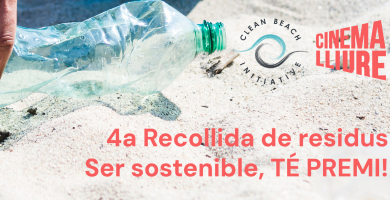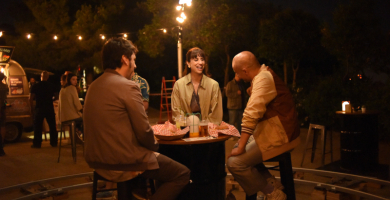
Marvin & Wayne: "We need the industry, the press and television fully involvement in order to professionalize the short film"
We interview Pablo Menéndez and Josep Prim from Marvin & Wayne, international short film distributior, after knowing that one of their shorts, Timecode, by Juanjo Giménez is nominated for the 2017 Academy Awards.

- How did the idea of setting up an international short film distributor came up?
The idea came with a group of friends we studied together in a film school, now defunct, in Barcelona. Our area was producing but suddenly we discover the world of distribution and we were very interested.
- Since your beginnings, eight years ago, how the digital revolution has influenced in the dynamics of your work?
The ease and the cost of registering a short in a festival has changed positively, as well as sending it. Now all the formalities are done online. Although there are some negative consequences, of course, and overcrowding. In one click you can send your short film to many festivals. It is not the same as sending all the information by post.
- In which way has it changed?
Before the advent of digital, the only way to present a short in a festival consisted of filling out a form and send it by post, along with a DVD. In fact, when we started, we went every week to the post with a lot of proposals.
Gradually some digital platforms which come into contact with the filmmaker or distributor festival became popular. So all you have to do is filling out a very specific site and upload your short. For a small fee, the platform shows you all the associated festivals and with a single click you can register it. It was a total and absolute change. Consequently, for now on there is a huge spectrum of people competing. For example, a small festival in Spain may be getting about 1,000 registered shorts on average, even the number can increase to 5,000.
- But your role as a specialized distributor, who knows very deep each short, can help and clarify this volume mass to festivals programmers?
I think so. With time we select less shorts to have the possibility of filter them to give the festival programmer what he or she is really looking for.
- And what can we see in the catalogue of Marvin & Wayne?
Now we are trying to bring all genres, from classical stuff to more experimental. We have the widest possible spectrum, so shorts can not made competition to each other. Above all, we like authoral shorts who excel in every way. We really like things we have not seen before. We seek for risk and stories that have a truly original authorship.
- Initiatives like 'The shortest day' committed to bringing the genre to the public are examples of doing good work in this regard?
Of couse! What we should do is find ways to publicize short films for an audience and also to give them a return, which is what obsesses us. Taking part in festivals often helps us, but not in an economic and profitable way. So new windows and events are necessary to reach the public's and 'The shortest day' is a good way.
However, there are some organized events that complicate a little bit the way of getting professional... I mean, festivals that are not really festivals; projections that take advantage of some authors and do not pay the director or the producer; some television stations broadcast without paying any right... But from our point of view, this practice does a disservice to the authors, because the filmmakers end up giving away their work for some false expectations.
We want filmmakers understand that these practices are detrimental to their own benefit. We must manage the way to professionalize the short film.
- Regarding Timecode... First of all, congratulations to the entire team for the Palme d'Or at Cannes and now for the nomination! How has been the Timecode way to the nomination?
There are two ways to start the race at The Oscars. One is to be awarded in festivals classifiers that are scattered around the world. This is the case of Timecode, that won at Cannes. The other way is to make a commercial release for a week in any cinema in Los Angeles, such as Pixar shorts do. If you meet one of these two requirements, you are eligible. Later a group of academics ranked the famous shortlist of a total of 10 titles. Finally they select the 5 nominated titles.
- And how is the promotion of a short film in the race for an Oscar?
In the case of Timecode, the Palme d'Or was itself promoting. Before entering the shortlist, some teams start a campaign, hiring a publicist, a specialist based in Los Angeles. That person is responsible for making all this work of promotion. We have been fortunate not to have the need in the first phase, but for this final stage we already have a publicist to handle with the press and to plan the media campaign ahead of the academics.
- Does the Academy requires certain PR actions?
The Academy does not require anything. Furthermore, they prohibited explicitly the request ot academics' vote. So the general rule that operates in these cases is to hire a communications expert and let him or her advice you.
- And now it is time to wait until 26th February...
Yes, of course. We will know whether Timecode wins the award during the ceremony. In any case that the academy organizes the same ceremony to all categories. That is, no B photocall B or even no B ceremonies. There is no explicit distinction between, for example, Best Short and Best Film categories.









